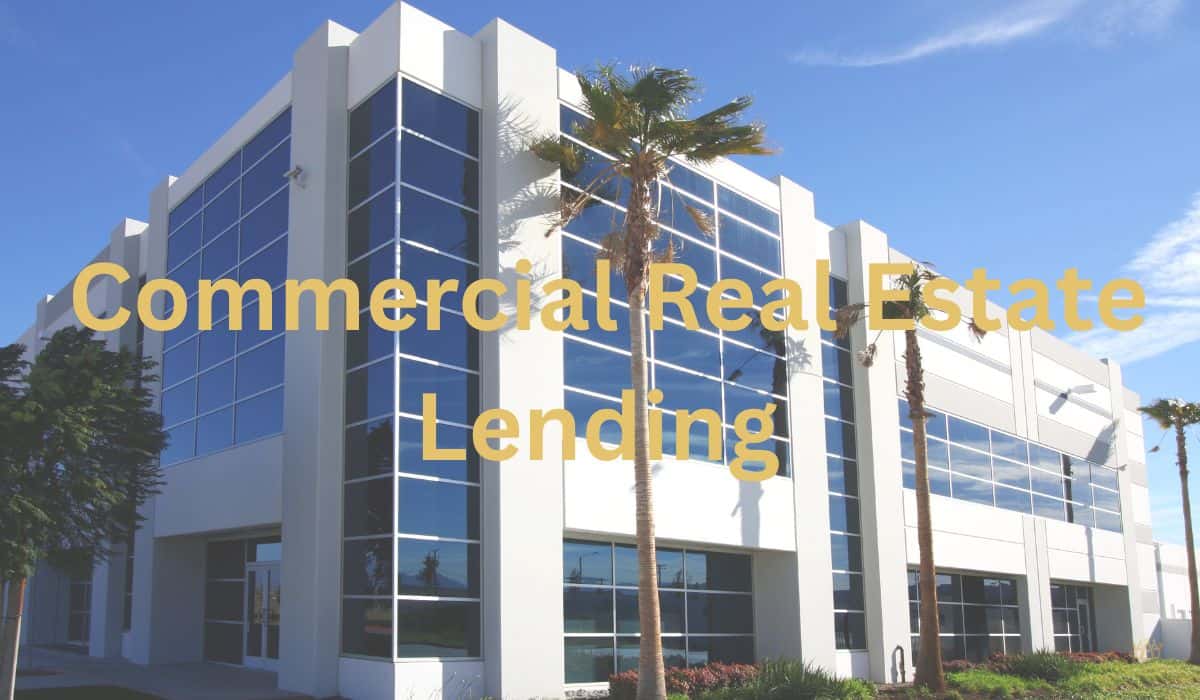You’ve found the perfect commercial property to flip or develop. However, time’s ticking, and traditional bank loans are moving at a snail’s pace. What to do?
That’s where hard money lenders commercial real estate experts step in. From our experience, they offer quick approval processes to get your project off the ground.
Based on Q1 2024 data, these private lenders provide hard money loans with average interest rates around 11% and origination fees near 2.5%, often funding up to 63% of the property’s value.
This article breaks down the top commercial hard money lenders for 2025, comparing loan terms, timelines, and tips to secure fast financing for investment properties.
So, whether you’re a developer or entrepreneur, you’ll find clear guidance to navigate commercial real estate investing with confidence.
Curious about other ways to fund your real estate projects? Our next article dives into commercial real estate crowdfunding platforms, offering fresh insights for investors. For additional strategies, explore our content on hard money loan terms commercial real estate.
For a broader look at funding options, check out our pillar page on alternative financing methods to explore every angle of real estate investing.
Short Summary
- Hard money lenders commercial real estate borrowers use focus on property value, not personal income or credit.
- These loans are ideal for fast closings, unique deals, or situations where traditional bank loans fall short.
- Common uses include bridge loans, land loans, rental properties, and quick purchase loans.
- Loan terms are short, rates are higher, and origination fees usually range from 2% to 3%.
- Choosing the right lender means looking for clear terms, fast communication, and a proven track record.
- Proper preparation helps speed up the process and reduces the risk of delays.
What Is A Commercial Hard Money Loan And When Should You Use One?
For real estate investors who need to move fast, commercial hard money loans are the way to go. They’re different from traditional loans in one big way: they’re based more on the subject property than your personal finances.
That makes them a go-to when timing, flexibility, or credit challenges get in the way of bank financing. Here’s how we break it down:
How Commercial Hard Money Loans Differ From Traditional Loans
Traditional lenders look at tax returns, W-2s, debt ratios, and often take weeks, sometimes months, to close. With hard money lenders, the focus shifts. They look at the property’s value, the exit strategy, and how quickly the borrower can close.
There’ve been cases where a bank dragged out a commercial real estate loan for over 60 days, only for the investor to miss the closing window. Meanwhile, a private hard money lender funded the same project in less than 10 days.
When To Use Hard Money
You’ll want to use hard money when speed and flexibility matter more than low rates. For example, a buyer securing a distressed retail strip had just two weeks before the seller walked. Credit score wasn’t great. To close the deal on time, the buyer used private money loan.
And they did!
It’s also useful when the project doesn’t fit the box. Think vacant buildings, unconventional real estate projects, or sites waiting on permits. Banks hesitate here, but commercial hard money lenders don’t flinch.
Common Use Cases
We often see bridge loans to cover gaps in financing, land loans for pre-development buys, or purchase loans for auction properties. Investors also use these loans to renovate rental properties before refinancing.
Here’s a quick list:
- Bridge loans for fast acquisitions
- Land loans while waiting for zoning or entitlements
- Rental properties with cash-out plans
- Purchase loans where banks require too much paperwork
Key Benefits Of Commercial Hard Money Loans
There are several clear upsides:
- Fast closings, often under 10–14 days
- Little to no income verification
- The deal hinges on the property value, not just the borrower’s financials
In one project, a team acquired a commercial property near a busy freeway. The bank didn’t like the tenant mix, but the private lender saw potential in the location and lease terms. That loan closed within the week.
This example shows that using hard money financing the right way saves deals that would’ve been lost to red tape. When handled right, it can create serious momentum in your real estate investing journey.
How Hard Money Lenders Work in Commercial Real Estate
Getting a hard money loan for commercial real estate is a totally different experience compared to working with banks. These lenders move fast, skip the fluff, and focus on what really matters to close a deal.
Here’s how the process works and what borrowers should expect from start to finish:
What Makes Hard Money Lenders Different
Hard money lenders base their decisions on the property’s value, not your tax returns or credit report. This is called asset-based lending, and it’s the core of hard money lending.
Instead of asking for years of financials, they look at:
- The loan-to-value ratio (LTV)
- The purchase price
- Your exit strategy
- The property’s current or potential income
Loan terms are usually short, around 6 to 24 months. Interest rates tend to run higher, often in the 10% to 12% range, with 2–3% origination fees. But what you pay in cost, you gain in speed.
Overview Of A Typical Loan Structure
Every deal varies, but most hard money loan programs follow a general structure:
- Loan amount: Based on LTV, usually up to 65% of the asset’s value
- Loan term: Often 12 months, with possible extensions
- Closing costs: Title, legal, and processing fees bundled in
- Origination fees: Usually 2% to 3% of the loan
For example, a borrower purchasing a mixed-use property for $1.5M might get a private loan for $975K with a one-year term and close within 8 days.
Understanding The Approval Process
Working with a direct lender often means fewer steps and a faster close. Brokers, on the other hand, shop your deal around, which may delay things.
A streamlined process might look like this:
- Submit basic info on the subject property
- Share your exit strategy
- Get a quick valuation
- Close in as little as 5 to 10 business days
Some investors worry about having too little paperwork. That’s fair. But in this case, it’s part of what makes private money loans work so fast.
Trade-Offs Of Hard Money Lending
There’s no denying the convenience. However, it comes with a few things to consider:
- Higher interest rates than traditional lenders
- No long-term amortization, which means a balloon payment at the end
- Short payoff window, which requires clear planning
That’s why having a strong exit, like a refinance or property sale, is key before closing on a commercial hard money deal.
How Private Hard Money Lenders Evaluate Deals
Private hard money lenders use a more practical lens. They don’t obsess over credit scores unless the score is extremely low.
What they look at:
- The subject property condition and location
- Borrower’s experience with real estate investment
- Project timelines and construction plans, if any
- The borrower’s ability to hit the closing date
In one deal we reviewed, the property had a few zoning issues but strong long-term upside. The borrower got funded based on the team’s plan and experience with similar commercial projects.
Hard money lenders commercial real estate investors focus on real results. The process works, especially when you need capital in a timely manner.
Choosing The Right Hard Money Lender For Commercial Properties
Not all hard money lenders commercial real estate investors are the same. The right match can be pivotal, especially if you’re on a tight timeline or dealing with unique project risks.
Knowing what to look for upfront saves time, money, and a lot of second-guessing later.
Criteria For Evaluating Hard Money Lenders
When reviewing lenders, use a checklist built on clarity, reliability, and deal experience. The strongest commercial hard money lenders make their loan structure easy to understand and consistent from start to finish.
Key things to check:
- Clear loan terms with no vague conditions
- Transparent upfront fees and total closing costs
- Realistic and reliable funding timeline
- A history of lending in the commercial real estate space
Be wary of lenders who are fast to promise but slow to act. That’s why track record matters.
Comparing Lender Types
There are a few types of hard money lenders out there. Each comes with its own style.
- National lenders usually offer broader programs and larger teams, but may lack flexibility on smaller or unusual deals
- Florida hard money lenders or regional specialists often understand local zoning issues, comps, and project timelines better
- Some private money lenders specialize in mixed-use, retail, or investment properties only
For example, one borrower working on a vacant building in Tampa got a faster close with a Florida-based lender who knew the area and had prior deals nearby.
Red Flags To Watch Out For
There are lenders worth passing on. If anything below shows up, pause and ask questions:
- Interest rate information is unclear or shifting
- Origination fees are higher than 3% with no added value
- No visible licensing or complaints when you search their business
- Confusing or changing loan terms after the term sheet
Shady practices exist, especially with less-established money lenders. A little homework upfront goes a long way.
Tips For Working With Private Lenders
Private loans for commercial properties often require more collaboration. Keep communication clear and expectations realistic. Be ready to show your numbers and your plan.
Some helpful tips:
- Present your real estate investment strategy clearly from day one
- Be upfront about any project delays or risks
- Build a relationship if you plan to borrow again
We’ve seen smoother deals when borrowers share their full investment process early. That way, the private hard money lender can move quickly and adjust if needed.
The right lender isn’t just fast. They understand your project and add real value to your real estate investing journey.
How to Get Approved Fast and Avoid Common Pitfalls
Getting approved for commercial hard money loans can be surprisingly smooth. That is, if you know what lenders need upfront. A little prep goes a long way. So, whether you’re buying, flipping, or refinancing commercial properties, the key is clarity, speed, and communication.
Prep Checklist For A Smooth Approval
Before reaching out to a hard money lender, have your essentials ready. This helps avoid bottlenecks during review.
What to prepare:
- Property details: purchase price, rehab budget, comps, and photos
- Clear exit strategy: sell, refinance, or lease
- Brief borrower background: experience, credit snapshot, and other active real estate projects
For example, investors who submit a one-page summary with the basics upfront usually get calls back the same day. Lenders like clean, easy-to-read details.
What Lenders Expect from Borrowers
A solid deal package earns quicker responses. Lenders aren’t chasing perfection, but they do expect a project that makes sense on paper.
Here’s what most hard money lenders look for:
- A realistic purchase price, supported by recent sales or a broker opinion of value
- An acceptable credit score, often 620+, but some private lenders are more flexible
- A documented plan showing how the loan will be repaid within the loan term
Borrowers with zero prep or unclear numbers usually stall the process. That’s avoidable.
How To Fast-Track Your Deal
Speed is a major reason people choose hard money loan programs. Keep the process simple to move fast.
To help close quicker:
- Outline the full project scope, from funding to rehab to exit
- Include rent comps or resale projections
- Make sure all docs are labeled, current, and in a single folder
Many borrowers close within five business days using that setup. It works!
Common Pitfalls That Slow Things Down
Avoidable mistakes can derail a quick close. We’ve watched good deals fall apart for small reasons.
Watch out for:
- Missing or inflated property value
- Incomplete paperwork, especially title docs or LLC info
- Spotty communication during underwriting
If anything is unclear, clarify it fast. Lenders want to say yes, but confusion kills momentum.
Advice For Foreign Nationals And First-Time Investors
If you’re a foreign national or new to real estate investing, you’re not stuck. There are still options. You just need a bit more structure.
Tips that help:
- Work with lenders used to foreign borrowers and who understand private money guidelines
- Get a local partner or manager to help with on-the-ground logistics
- Be ready to provide ID, proof of funds, and a U.S.-based bank account
- First-timers should stick with private hard money lenders who focus on investment properties. Many will walk you through the process without judgment. The goal is to get funded, not perfect the first time around.
Being prepared sets you apart in the hard money financing world. The smoother your package, the faster your deal moves.
Final Thoughts
Getting funding for commercial real estate doesn’t have to be complicated. The right hard money lenders offer quick answers, flexible terms, and real support, especially when time’s tight or the project is unconventional.
Focus on lenders who communicate clearly, move fast, and know your market. If you’re planning your next deal or need capital soon, take what you’ve learned here and start reaching out.
For more tips, tools, and trusted lender guides, check out our homepage! You’ll find everything you need to move forward with confidence.
Frequently Asked Questions
What is a Hard Money Loan in Commercial Real Estate?
A commercial hard money loan is a short-term loan based on the value of a property, not the borrower’s credit history or income. It’s often used when traditional financing isn’t an option due to time or project complexity.
How Fast Can a Commercial Hard Money Loan Close?
Most hard money lenders can close in 5 to 14 days if paperwork is complete and the deal is clear. Some direct lenders may even fund in under a week for time-sensitive projects.
What are Typical Interest Rates and Fees for these Loans?
Rates for hard money loans often range between 10% and 12%, with origination fees around 2% to 3%. The loan term is usually 6 to 24 months with no long-term amortization.
Can First-time Investors or Foreign Nationals Apply?
Yes, many private lenders work with new investors and foreign nationals. Lenders may require a local manager, clear paperwork, and a strong real estate investment plan to get approved.






